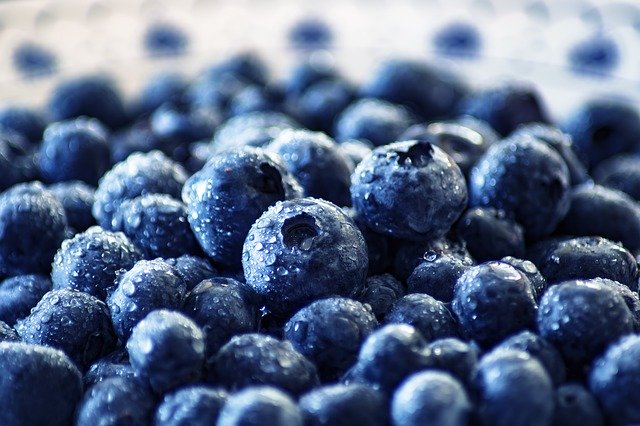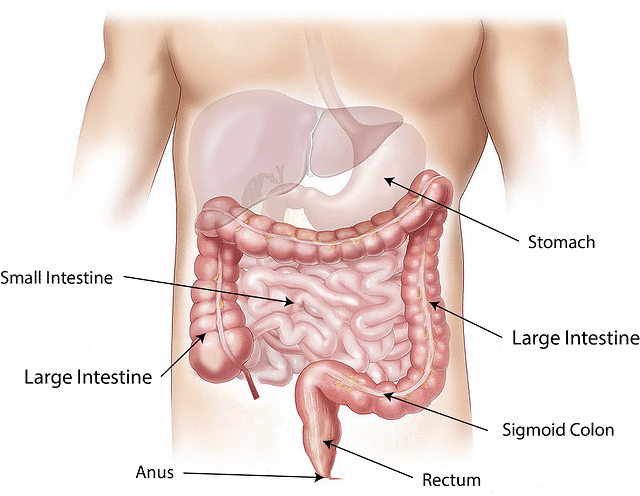Scientists from the Tokyo University of Science now show how a polyphenolic compound derived from blueberry can treat inflammatory bowel disease.
In model animals, the compound inhibited the proliferation of Dendritic cells and T cells responsible for “hyper” immune response causing inflammatory bowel disease.
The findings were published in The FASEB Journal.
Plant Products: Health Benefit, Immune Response
Plants or plant products provide us with all forms of nutrition like protein, carbohydrates, fat, fiber, vitamin, and minerals.
A fraction of plant-based food like vegetables, fruit, herbs and seed contain polyphenols, which are primarily antioxidants but provide a wide range of health benefits reducing the risk of heart disease, metabolic syndrome, diabetes, certain cancers, and inflammation.
Inflammation is an innate immune response that protects our body against pathogens. But the excessive immune response can be harmful as well.
For example, the excessive immune reactions that the body generates against the COVID-19 virus, SARS-CoV-2, are linked with an increased risk of vascular hyperpermeability, multiorgan failure, and eventually death in many Covid-19 cases (Jose et al., 2020).
Dendritic cells (DCs) and T cells play essential roles in the regulation of immune response.
Therefore, these cells have become the targets for developing a preventive and therapeutic strategy against overactive harmful immune responses.
Previous Work Linked to Present Study
Much research in the past has shown that resveratrol (RSV), a polyphenol found in grapes, exerts therapeutic effects against neurological, cardiovascular, and metabolic disorders in humans.
In the experimental animal, the compound is also shown to possess the immunomodulatory activity and reduce inflammation (Larrosa et al., 2009).
A research team at Tokyo University of Science, led by Prof Chiharu Nishiyama, has been working for the last few years to identify novel active components in functional foods and to understand their effects on the body.
In a study published in The FASEB Journal, the scientists identified a polyphenolic compound called “pterostilbene” (PSB) in blueberry with strong immunosuppressive activity—making the compound a potential therapeutic option for chronic inflammatory diseases, including inflammatory bowel disease (IBD) (Yashiro et al., 2020).
Blueberry Compound
The compound pterostilbene” (PSB), the primary antioxidant component of blueberry, is very similar to another compound, “resveratrol” (RSV), — found in grapes, berries, and known to have important medicinal effects, including immunomodulatory and anti-inflammatory effects on animal models.
Therefore, “we investigated the possibility of other compounds structurally similar to RSV as a new type of treatment for IBD.”—stated co-author Dr Takuya Yashiro.

Patients suffering from IBD have chronic ulcers in the stomach caused by inflammation, which involves the production of excessive immune molecules known as cytokines. The cells “dendritic cells” (DCs) and “T cells,” are also involved in the process. DCs produce inflammatory cytokines and activate T cells to initiate a defense response.
These processes together form a complex pathway that results in a “hyper” immune response. Thus, it was crucial to test the compound on this population of immune cells to find a useful compound that can suppress the immune system.
Study Outcome and Significance
To begin with, the scientists tested several plant-derived compounds on DC-mediated T-cell proliferation. They found the blueberry compound as a stronger immunosuppressive component than the other tested compounds.
The results also showed that the PSB treatments prevent T cells from differentiating into Th1 and Th17 cells.
The scientists also revealed that PSB treatment inhibits inflammatory cytokine production from DCs. Further, when tested PSB in mice with IBD, the scientists found that oral administration of PSB improved symptoms of IBD. Thus, the study confirmed that PSB is a promising anti-inflammatory agent to treat IBD.
Through these findings, scientists have explored new possibilities for the treatment of not just IBD but also other inflammatory disorders.
“Our findings showed that PSB possesses a strong immunosuppressive property, paving the way for a new, natural treatment for IBD.”—Dr. Yashiro concludes.




















